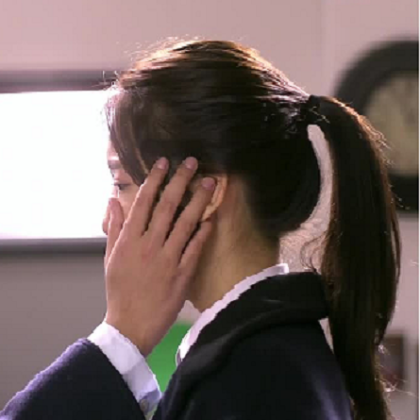Jonathots Daily Blog
(3987)
Sitting Eleven
A gentle moment of tenderness swept over the heart of Karin Koulyea.
At first she didn’t recognize the emotion, having not encountered it for some time. She found it best to protect her soul just short of the border of bitterness. She never felt comfortable, she was never assured, and she always found herself defending her life because she was born a woman.
But standing there in the desert, she realized that these two young boys had captured her imagination, as immature and foolish as they obviously were. There was a devotion that linked the two of them which was unmistakable, and nearly brought the hard-bitten reporter to tears.
Confused by her feelings and realizing that she was flirting with becoming part of the story instead of reporting it, she asked, “So, what is my story? What do you know about me? Are you just setting me aside because you’re rejecting everyone who isn’t one of you two?”
“You don’t have a story,” Iz explained, leaning forward. “We didn’t ask you to come here. We didn’t ask to be bothered. We don’t want to solve any problem. We just don’t want anyone to take away our friendship.”
Karin shook her head and scoffed. “How about that soldier down there? How about the grenade?”
“You brought him,” countered Iz.
Karin took a deep breath for dramatic effect. “Actually, he brought me. My jeep gave up on the way here and I hitched a ride.” She gazed steadily at the pair. “And I will tell you right now—he wants his grenade back and he will not leave until he gets it.”
Pal carefully considered her words. “Tell him he can have his hand grenade if we can have his gun.”
Iz loved the idea and clapped his hands. Karin, on the other hand, chuckled before realizing that Pal was serious. “No, I don’t think he’ll do that,” she said. “Matter of fact, I can pretty well guarantee you that he’ll nix that suggestion. But calm down—let’s drop this for now. Just listen. For my story…” She held up her hand. “And listen, boys, I am going to walk away from here with a story. So for my story, I need your names.”
“We have new names,” said Iz proudly. Pal nodded in agreement.
Karin, grateful for the conversation, asked, “All right. What are your new names?”
“I am Iz and this is Pal,” he replied.
Karin nodded her head. “I see,” she said. “For Israeli and Palestinian.”
Pal was very aggravated at how quickly Karin figured out their cleverness. “Is it that obvious?” he asked, disappointed.
“Well, it sure ain’t Gordian’s knot,” she replied.
Iz and Pal looked at each other, confused. Karin reconsidered her comparison and replaced, “Well, it sure ain’t algebra.”
The two boys bobbed their heads, understanding. Karin continued. “Well, Iz and Pal, you’ve got a problem. You really can’t stay here—especially with a hand grenade, which is going to gather great interest. Let’s be honest. What’s to keep that big, burly soldier down there from running up the hill and whipping your butts, and carrying you off to jail?”
“The hand grenade,” said Iz simply.
Karin pointed at him. “You mean the hand grenade you don’t know how to use?”
“The soldier doesn’t know that,” responded Pal.
Karin looked around the desert as if seeking divine wisdom, and then continued. “Listen, kid—there is no threat you will ever make that you won’t eventually have to back up. That’s why countries go to war. Because somebody somewhere was stupid enough to threaten somebody else. Then they end up needing to back it up by killing a bunch of innocent people.”
Iz and Pal listened very carefully. Karin was once again moved by their sincerity, but completely unnerved by their foolish innocence. They did not realize how dangerous it was to live in this land, where threats always became violence. They were ignorant of how a weapon in the hand eventually became a casualty on the ground. Whether they knew how to use a hand grenade or not, they were still in great peril.
She had no idea what to do. Perhaps they were small enough that she could take them on herself—at least one of them. Maybe if she overpowered Iz and pulled him down the hill, then Pal would dutifully follow. As always, the problem was, there wasn’t much time to think it over. And she didn’t trust Minioz. Was he concerned about the boys, or just intent on retrieving his hand grenade and making sure no ranking officer was aware he had lost it?
She looked toward the jeep. Suddenly, it was even more problematic. The sergeant was heading up the hill, weary of waiting. He was definitely not to be trusted. How desperate was he to cover up his error? Would he harm the boys?
Karin made a quick decision. “Listen,” she said. “Here he comes. I am probably the most stupid woman on Earth—but watch carefully. Here’s how the hand grenade works. I had to learn about them when I was a correspondent in Lebanon. First, look at the pin.” She pointed to the pin dangling from the grenade. “When you remove that pin, it opens a fuse. You have no more than five seconds to toss it and get away from the grenade before it explodes. Be careful. Some people know how to put the pin back into the grenade, but I don’t.”
Iz and Pal focused intently. Fidgeting, Iz fingered the pin.
“No!” screamed Karin, pulling his hand away. “It’s not a toy and this is no game. I did not tell you this so you would kill yourselves, or me, for that matter. I just don’t want the soldier to hurt you.”
Minioz was very near. It was all heading toward a very precarious conclusion.
Karin had been right.
Could any good thing come out of this story?
 The producers of jonathots would humbly request a yearly subscription donation for this inspirational opportunity
The producers of jonathots would humbly request a yearly subscription donation for this inspirational opportunity





